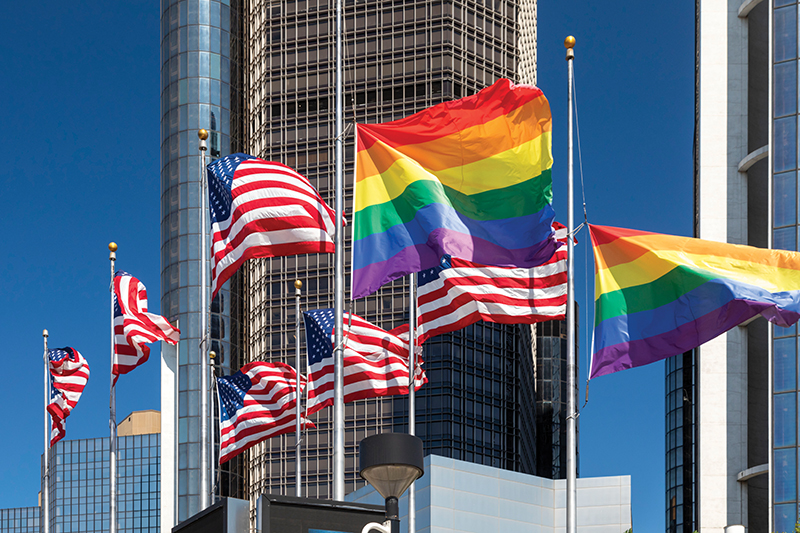
In early June, the U.S. Supreme Court guaranteed protection against workplace and housing discrimination for LGBTQ Americans in a landmark case emanating out of Michigan. That case, formally known as R.G. & G.R. Harris Funeral Homes Inc. v. Equal Employment Opportunity Commission, involved Aimee Stephens, a transgender woman from Redford who was fired after informing her employer in 2014 that she would be presenting as a woman. The case was only the latest precedent-setter with Wolverine State ties. Here are some other notable decisions with national implications:
1972Ь§
U.S. v. U.S. District Court for the Eastern District of Michigan: A unanimous court ruled the government must obtain a warrant to conduct electronic surveillance of U.S. citizens. The case involved three Michiganaders charged with conspiracy to destroy a CIA office in Ann Arbor.
1986
Michigan v. Jackson: By 6-3, the court said defendants who assert their right to counsel at an arraignment or arrest cannot later have that right waived for them if the police try to question them again. The matter involved two Michigan murder cases in which SCOTUS ruled evidence was improperly obtained. (The ruling was reversed in 2009.)
2003 Ь§
Grutter v. Bollinger & Gratz v. Bollinger: Two rulings that clarified affirmative action law. A 5-4 majority in Grutter said U-M Law School could use race as one of many factors to favor тunderrepresented minority groups.т In Gratz, though, a 6-3 majority said the U-Mтs undergrad-admission point system for assessing applicants could not include a specific point bonus for minority students. Notably, Justice Sandra Day OтConnor predicted in the Grutter majority opinion that the court тexpects that 25 years from now, the use of racial preferences will no longer be necessary to further the interest approved today.т
2012
Hosanna-Tabor Evangelical Lutheran Church & School v. Equal Employment Opportunity Commission: Religious institutions can bypass the Americans with Disabilities Act in firing a minister, SCOTUS ruled unanimously, in a case involving a Redford minister refused her job after returning from medical leave.
2014
Schuette v. Coalition to Defend Affirmative Action: SCOTUS ruled 6-2 that Michigan could amend its constitution to ban affirmative action in public hiring and public university admissions. Michigan voters approved the measure, known as Prop 2, by a 58-42 percent vote in 2006.
2015 Ь§
DeBoer v. Snyder: One of four cases used by SCOTUS to rule 5-4 that bans on same-sex marriage were unconstitutional involved a Hazel Park couple suing to wed and to take joint legal custody ofЬ§ their three children. The watershed case is known generally as Obergefell v. Hodges, for an Ohio case, but Michigan Attorney General Dana Nessel, who was the coupleтs attorney, asserts the issues of DeBoer gave the court its best opportunity to legalize marriage equality. Justice Anthony Kennedy wrote for the majority that the plaintiffs respect the sanctity of marriage тso deeply that they seek to find its fulfillment for themselves.ттSЙѓ
|
| Ь§ |
|










